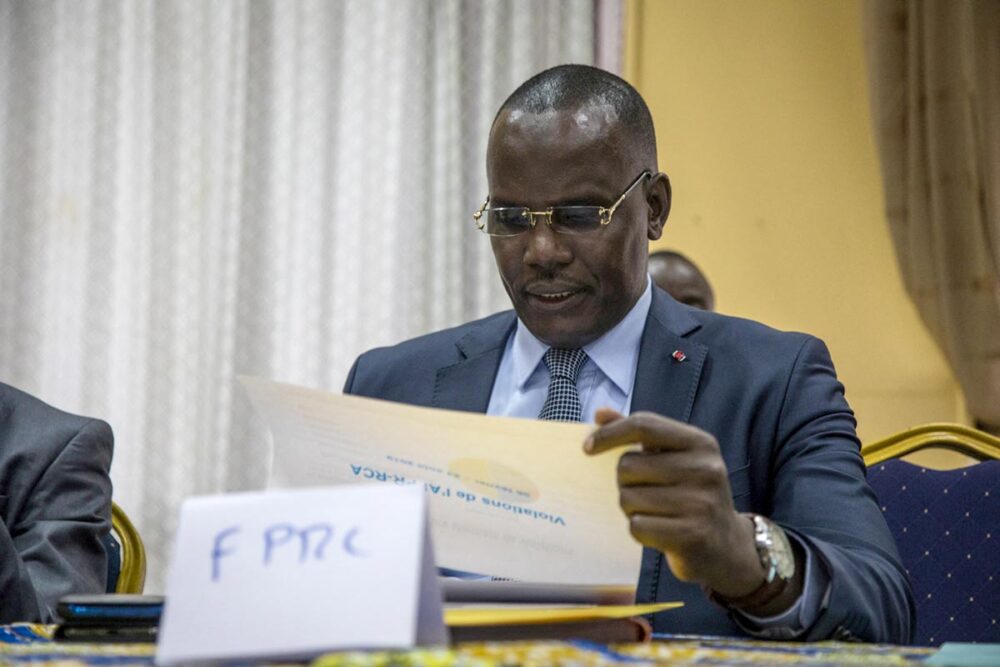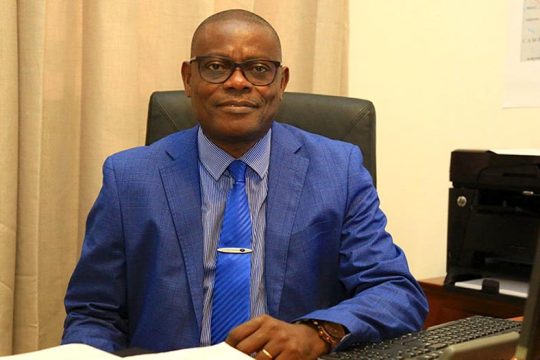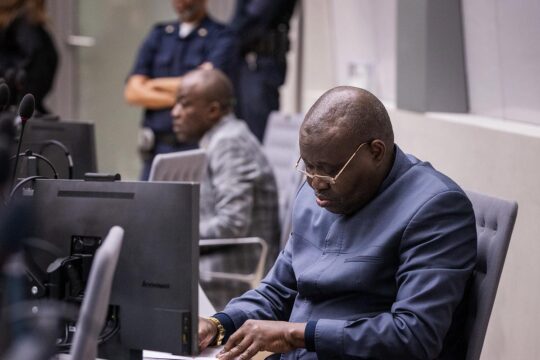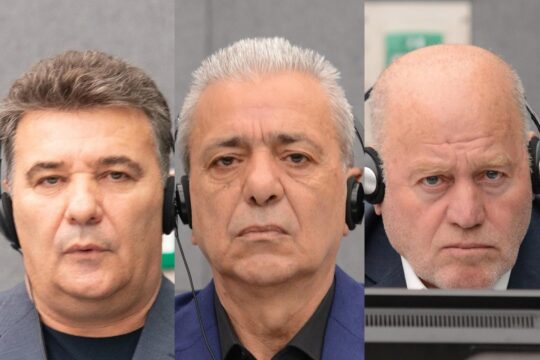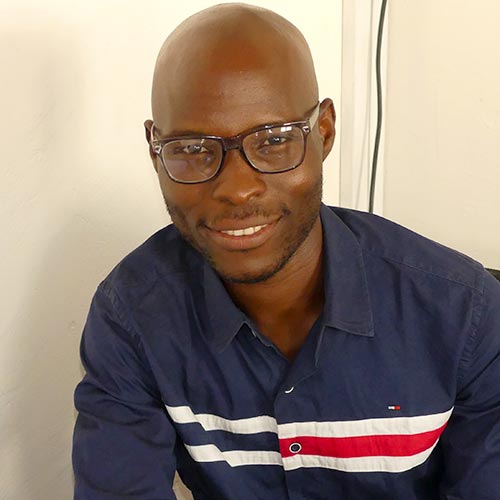Hissène, 56, is former head of Convention des patriotes pour la justice et la paix (CPJP) and later became chief of staff of the FPRC (led by Noureddine Adam who is wanted by the International Criminal Court). A leading figure in the Central African Republic’s host of armed groups, Hissène has, according to several NGO and UN reports, made a fortune from mining activities in the northeast of the country.
He has also donned the political mantle. Hissène was involved in the rebellion from an early age, and rose through the ranks of the ex-Séléka to become Minister for Youth and Sport between 2012 and 2013, under the Libreville peace agreement (signed in 2012 between President François Bozizé and the Séléka). When the Séléka came to power by force in March 2013, Hissène remained minister until the fall of Michel Djotodja in January 2014 and the dissolution of the Séléka.
Arrested in 2016 by the research and investigation section of the Central African national gendarmerie, his men forcibly rescued him from the hands of the security forces, causing several deaths and injuries as they fled across the Damara checkpoint (75 km northeast of Bangui). Members of the FPRC also kidnapped police officers from Bangui's 3rd arrondissement police station in 2015. Between 2017 and 2019, the FPRC was involved in several attacks and clashes in Ndélé, Bria, Sam Ouandjia and several other towns in the northeast region. Having escaped, Hissène was never tried and his case remained pending before the Bangui criminal court, former public prosecutor Eric Didier Tambo told Justice Info.
In March 2022, during the dialogue with civil society and political parties initiated by President Faustin Archange Touadéra, Hissène – in disgrace with his armed group -- announced that he was leaving the FPRC. Member of the disarmament monitoring committee set up under the February 2019 peace agreement, Hissène refused to join the Coalition of Patriots for Change, a new opposition formation bringing together several armed groups including part of the FPRC. This stance brought him closer to the current regime. He encouraged his men to disarm. It was this rapprochement that made him an unofficial adviser to President Faustin Archange Touadéra and enabled him to return to live in Bangui.
Under several judicial investigations, he claimed never to have killed a chicken, but declared in late March 2022 during a live broadcast on Radio Ndeke Luka that there was a cell at the International Criminal Court (ICC) waiting for him. However, since his arrest last week, the ICC has not come forward to take up his case -- despite having arrested one of his former lieutenants in January 2021.
Arrested in another case
Justice Info learned from security sources that Hissène had been arrested on Monday September 4 at his home in Bangui. However, the SCC waited until Thursday 7 to publish a statement detailing his indictment. "The judges issued a warrant for the arrest of Abdoulaye Hissène, which was served on him on September 6. Hissène was presented on September 7 to the SCC investigating office, which held the initial appearance hearing," states the press release. Hissène is charged with "several crimes against humanity and war crimes committed on the territory of the Central African Republic in 2017, in his capacity as leader of the FPRC," says the document, which does not give the specific acts of which he is accused.
Initially, the SCC’s silence cast doubt on whether he had been arrested. “It wasn’t the Special Criminal Court that directly issued an arrest warrant for Abdoulaye Hissène," said SCC head of communications Gervais Opportun Bodagaye on Radio Ndeke Luka. “He was first arrested by the CAR national forces in connection with another case. When the SCC heard this news, it requested his transfer to face charges of serious crimes allegedly committed in 2017." According to security sources, this "other case" is an internal security matter. Hissène was arrested at his home in Bangui for harbouring a "foreigner", a man who spoke neither French nor Sango (the national language of the Central African Republic), whom he had brought to his home two days earlier, our sources said. This caused mistrust towards this former rebel who became an ally of the Bangui regime.
SCC holds its breath
As the days passed without any official statement from the court, the situation was reminiscent of the SCC’s humiliation at the escape of Hassan Bouba in November 2021. Arrested on an SCC warrant, current Minister for Livestock Bouba had been remanded in custody at the Roux camp prison. The day before he was due to appear in court, he was freed from his cell by a special unit of the Central African Gendarmerie. He returned to government service a few days later. The SCC deplored this act and denounced it as an obstacle to the administration of justice.
Many expected a press release announcing Abdoulaye Hissène's escape. A number of Central African human rights activists again spoke of pressure on the SCC but this was not confirmed by the institution. And since his arrest, the SCC has been holding its breath. "It's one thing to say that justice is the government’s backbone and another thing to make sure justice can do its job independently and impartially," said the head of the SCC communications unit.
"It's true that in recent years the SCC has had difficulty implementing its mandate,” said Abdoulaye Diarra, Amnesty International's Director General for Central and West Africa. “It's not easy work, it's laborious, and the institution is working with great determination. So we salute the work of the SCC. But the concerns have not gone away. [Bouba's escape] is a very serious matter that has given rise to serious concerns, especially on whether the SCC will be able to do its job and hear all the people it considers important to hear."
"I think that we are in the process of turning the page in CAR, thanks to the SCC,” says Human Rights Watch Africa Director Lewis Mudge. “But at the same time, there are many challenges."
A "non-event"?
The enthusiasm shown by the international community is not shared by the Central African Human Rights League (LCDH). "We don't see this as an act of justice," said Joseph Bindoumi, President of the LCDH. "The authorities know that Abdoulaye Hissène is a criminal who committed crimes while fleeing from the Anti-Balaka at Pk 12 (checkpoint at the northern exit of Bangui), all the way to Ndélé. Everyone knows that when he arrived in Bangui, he was detained. He organised an escape, giving the impression that he was the strongest, that even though he was in the hands of the law, his men could get him out. In Ndélé, he set up a republic, his militiamen occupied the gendarmerie and the prefecture. Hissène came to Bangui with his hands stained with blood. He entered the presidency, greeted people and ate with them. He taunted human rights organisations. And now they say he's been arrested. This is sure to end with Hissène getting out and taunting people again, it’s something we see as a non-event."
When will Abdoulaye Hissène's first public hearing take place? "For the moment, the investigation is ongoing and secret. The confirmation of charges hearing will be scheduled when the judges deem the charges sufficient," explains Bodagaye. The Hissène case is one of a dozen or so cases currently being investigated by the SCC. Referral to trial of the so-called "Ndélé I" case, which led to several arrests in 2020, could be confirmed at a forthcoming hearing on September 29.


